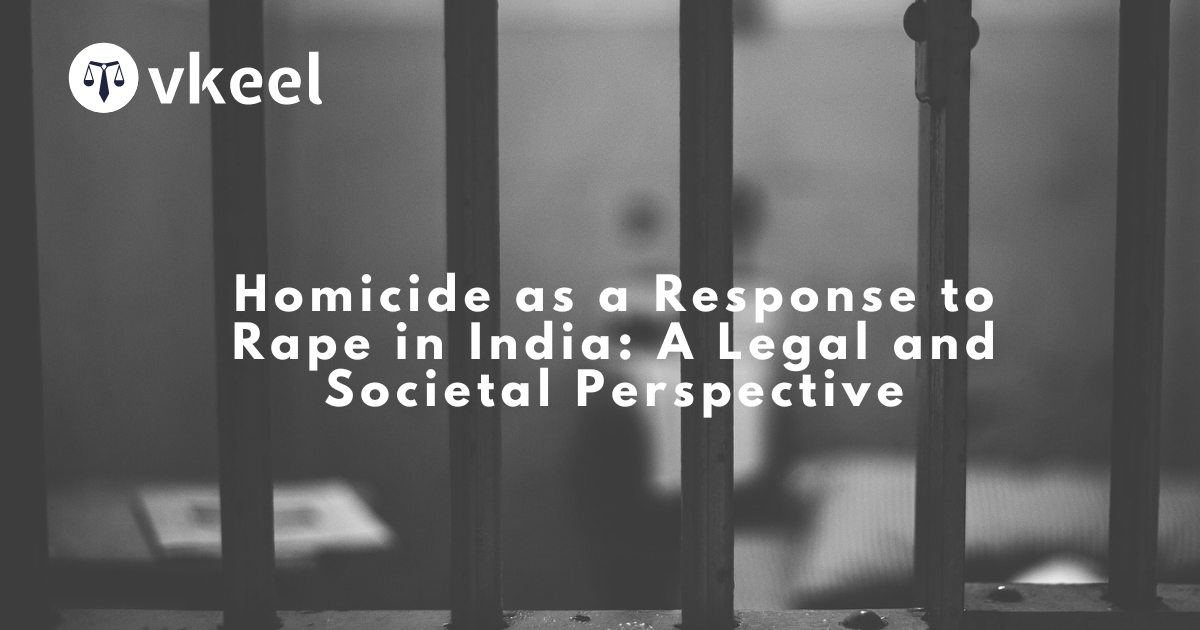The Role of Mental Health in Criminal Defense in India
By Himanshu Kumar
Table of Contents
Introduction
Mental health has emerged as a critical factor in criminal defense globally, including in India. The intersection of mental health and the law presents complex challenges, as courts must balance the interests of justice with the need for compassionate treatment of individuals with mental disorders.
The recognition of mental health issues in criminal law is not new in India. The Indian Penal Code (IPC), 1860, under Section 84, provides the foundational legal provision concerning the defense of insanity. Section 84 states:
“Nothing is an offense which is done by a person who, at the time of doing it, by reason of unsoundness of mind, is incapable of knowing the nature of the act, or that he is doing what is either wrong or contrary to law.”
This provision aligns with the M’Naghten Rules, a standard for determining criminal insanity that originated in English law.
Evolution of Judicial Interpretation
Landmark Case Laws
- Ratan Lal v. State of Madhya Pradesh (1970)
In this case, the Supreme Court of India held that the burden of proving the defense of insanity lies on the accused. However, the Court also emphasized that the prosecution must establish beyond a reasonable doubt that the accused had the requisite mens rea for the offense.
- Surendra Mishra v. State of Jharkhand (2011)
This case highlighted the importance of medical evidence in determining the mental state of the accused. The Supreme Court underscored that mere abnormality of mind or partial delusion is not sufficient to prove insanity; the accused must be incapable of understanding the nature of the act.
- Bapu @ Gajraj Singh v. State of Rajasthan (2007)
In this case, the Court reiterated that the test of insanity is whether the accused understood the nature and quality of the act or whether he knew it was wrong. The decision reinforced the M’Naghten Rule in the Indian context.
Statutory Framework
Indian Penal Code (IPC), 1860
Section 84 of the IPC, as discussed, is the primary statutory provision concerning the insanity defense. However, other sections of the IPC, such as Section 82 (Act of a child under seven years of age) and Section 83 (Act of a child above seven and under twelve of immature understanding), also indirectly address the concept of mental incapacity.
Code of Criminal Procedure (CrPC), 1973
The CrPC contains several provisions that cater to the mental health of the accused:
- Section 328: Provides for the examination of the accused by a medical officer when there is reason to believe that the accused is of unsound mind and incapable of making his defense.
- Section 329: Deals with the procedure in cases where the accused is found to be of unsound mind.
- Section 330: Allows for the postponement of the trial if the accused is found to be of unsound mind.
Mental Healthcare Act, 2017
The Mental Healthcare Act, 2017, marks a significant legislative step in the protection of the rights of persons with mental illnesses. It ensures access to mental healthcare and treatment, decriminalizes suicide, and emphasizes the dignity and rights of individuals with mental health issues.
Recent Amendments and Judicial Trends
Mental Healthcare Act, 2017
The Mental Healthcare Act, 2017, has brought about a paradigm shift in the treatment of individuals with mental health issues within the criminal justice system. Key features of the Act include:
- Decriminalization of Suicide: The Act acknowledges that individuals who attempt suicide are under severe stress and need appropriate care, not punishment.
- Right to Mental Healthcare: It ensures that every person has the right to access mental healthcare services funded by the government.
- Advance Directive: Individuals can specify the way they wish to be treated for mental illness and nominate a representative.
Judicial Interpretations Post-2017
- Re: Inhuman Conditions in 1382 Prisons (2017)
In this suo motu case, the Supreme Court of India addressed the issue of the treatment of mentally ill prisoners. The Court emphasized the need for humane treatment and the provision of adequate mental healthcare facilities in prisons.
- Accused ‘X’ v. State of Maharashtra (2019)
In this case, the Bombay High Court acknowledged the Mental Healthcare Act, 2017, and emphasized that the rights and treatment of the accused with mental illness must be in accordance with the provisions of the Act.
Challenges and the Way Forward
Despite the legislative and judicial advancements, several challenges persist in effectively integrating mental health considerations into criminal defense in India:
Lack of Awareness and Training
There is a significant lack of awareness among law enforcement officers, legal practitioners, and even judiciary members regarding mental health issues. Comprehensive training and sensitization programs are essential to bridge this gap.
Inadequate Mental Health Infrastructure
The mental health infrastructure in India is grossly inadequate, with a shortage of mental health professionals and facilities. This inadequacy hampers the proper assessment and treatment of individuals with mental health issues within the criminal justice system.
Stigma and Discrimination
Stigma and discrimination against individuals with mental health issues continue to be rampant. This societal bias often extends into the criminal justice system, affecting the fair treatment of such individuals.
Need for Forensic Psychiatry
Forensic psychiatry, which deals with the intersection of mental health and law, is still in its nascent stages in India. There is a need for specialized training and development of this field to assist the judiciary in making informed decisions.
Conclusion
The role of mental health in criminal defense in India is evolving, with significant strides made in recent years through legislative amendments and progressive judicial interpretations. The Mental Healthcare Act, 2017, represents a landmark shift towards a more humane and rights-based approach to mental health. However, the effective implementation of these provisions requires concerted efforts to address the existing challenges of awareness, infrastructure, and societal attitudes.
As India progresses, it is imperative to ensure that the criminal justice system is equipped to handle cases involving mental health issues with the sensitivity and expertise they require. This not only upholds the principles of justice and fairness but also ensures the protection and dignity of individuals with mental health disorders within the legal framework.
Disclaimer:
The information provided in the article is for general informational purposes only, and is not intended to constitute legal advice or to be relied upon as a substitute for legal advice. Furthermore, any information contained in the article is not guaranteed to be current, complete or accurate. If you require legal advice or representation, you should contact an attorney or law firm directly. We are not responsible for any damages resulting from any reliance on the content of this website.







